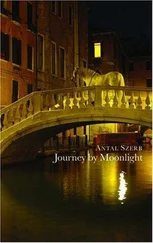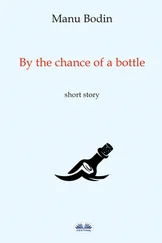Antal Szerb - Love in a Bottle
Здесь есть возможность читать онлайн «Antal Szerb - Love in a Bottle» весь текст электронной книги совершенно бесплатно (целиком полную версию без сокращений). В некоторых случаях можно слушать аудио, скачать через торрент в формате fb2 и присутствует краткое содержание. Год выпуска: 2013, Издательство: Pushkin Press, Жанр: Классическая проза, на английском языке. Описание произведения, (предисловие) а так же отзывы посетителей доступны на портале библиотеки ЛибКат.
- Название:Love in a Bottle
- Автор:
- Издательство:Pushkin Press
- Жанр:
- Год:2013
- ISBN:нет данных
- Рейтинг книги:5 / 5. Голосов: 1
-
Избранное:Добавить в избранное
- Отзывы:
-
Ваша оценка:
- 100
- 1
- 2
- 3
- 4
- 5
Love in a Bottle: краткое содержание, описание и аннотация
Предлагаем к чтению аннотацию, описание, краткое содержание или предисловие (зависит от того, что написал сам автор книги «Love in a Bottle»). Если вы не нашли необходимую информацию о книге — напишите в комментариях, мы постараемся отыскать её.
and
.
Love in a Bottle — читать онлайн бесплатно полную книгу (весь текст) целиком
Ниже представлен текст книги, разбитый по страницам. Система сохранения места последней прочитанной страницы, позволяет с удобством читать онлайн бесплатно книгу «Love in a Bottle», без необходимости каждый раз заново искать на чём Вы остановились. Поставьте закладку, и сможете в любой момент перейти на страницу, на которой закончили чтение.
Интервал:
Закладка:
On receiving news of this success Marcantonio hurried off to Rome to order the suit of ceremonial armour and cloak in which he would soon be triumphantly processing into the fortress of San Felice; nor did he lose any time in securing the services of his uncle the bishop to celebrate the Te Deum in honour of his victory over the heretics. But when he arrived back in Cortemiglia there was gloomy news. It appeared that on the following day Mascolo’s troops, confident of success, had advanced onto the plain that lay in front of the fortress. But there a surprise awaited them. The main gates immediately swung open and the opposing army appeared, almost two hundred men, in full armour, with trumpets blaring and extremely war-like demeanour. At this point a detachment of Sant’Agnese’s force, disaffected with Mascolo on account of his allegedly unfair distribution of the first day’s booty, immediately crossed over to the other side, while the rest took to their heels, not stopping until they reached their usual bolt holes up in the hills. Mascolo himself — the only casualty of the battle — was run through from behind.
However we consider this episode, it does little to suggest that Marcantonio’s passionate thirst for glory had continued to grow, which in turn serves only to make him a somewhat more sympathetic figure in the eyes of posterity. We must of course bear in mind that, in the final analysis, and in terms of the great intellectual and religious achievements of the age, of its heroism and extreme fervour, Marcantonio’s contribution is limited to the level of mere aspiration — rather like his little army at the fortress of San Felice. As far as posterity is concerned, the only thing of importance in the whole of this man’s career may well be the one that to him would have been of the very least consequence: that in the last years of his life he formed a connection with Galileo, assisted him financially, and at the height of his persecution remained one of his genuinely loyal supporters.
As is apparent from his correspondence, Marcantonio had read Galileo’s Dialogue Concerning the Two Principal World Systems as an early manuscript. In this work the great scientist, following the practice of the time, sets out his defence of the Copernican scheme against the prevailing doctrine of Aristotle in literary form. Sant’Agnese would surely have enjoyed the absurdities put in the mouth of one of the speakers in this dialogue, a man called Simplicius — a device that was used by Galileo’s enemies to persuade the Pope that he was the intended target of the mockery. Urban VIII turned his implacable rage on Galileo, despite efforts by his supporters, among them Sant’Agnese and his uncle the bishop, to mediate between them. Galileo’s now well-known fate was not to be averted, and he was forced to recant his teachings in the cell of the Holy Inquisition.
At about this time Sant’Agnese’s mind was much exercised by the fundamentally new world order that Copernicus and Giordano Bruno had proposed in opposition to the system sanctified by tradition. Although not especially intelligent, through having the time and the right sort of independent mind he was able to foresee the vast possibilities that lay in their discoveries. His initial response to the new vistas opening up to a person of reason and understanding was one of naïve and almost triumphant glee, and it was only later, after he had become a convert to the new way of thinking and it was too late to shed his convictions, that he fully understood the danger.
Marcantonio’s letters written in his final period give us a partial glimpse into the spiritual crisis precipitated, almost certainly, as a result of these experiences. On several occasions he grieves for the lost happiness of his youth, when he still believed that the Earth was the centre of the universe and that the sun went round it, along with the moon and the eternal stars. But now he knew that our world was just one among the countless millions, and indeed, seen in that perspective, by no means the largest or the most important, and might even turn out to be an utterly tenth-rate little star, an anonymous and quite insignificant nonentity in the mind-numbing hierarchy of heavenly bodies. And if that were indeed the case, he asks in one of his letters, with a mixture of awe and alarm, then how could it possibly be that God should have sacrificed his Only Begotten Son to redeem the same little tenth-rate star? But then, as if recoiling from the very thought, he immediately begins writing about some marvellous sauce that his new chef has discovered in the French ambassador’s kitchen.
By this stage in his life Marcantonio was hardly an old man, but his tone in the letters becomes increasingly sombre. You feel there is something constantly preying on his mind. If one had to hazard a guess as to what that might have been, perhaps it would be this troubling thought — that if the Earth does not command pride of place among the stars, then what do our worldly hierarchies amount to? Once you realise that the Earth is not an aristocrat among celestial bodies, does that not imply that we can no longer truly believe in our own aristocracy? In the age of Bragmart and his illustrious Sant’Agnese forebears it would never have occurred to anyone to doubt the sovereignty of the Earth…
Marcantonio was also plagued by material concerns. He was reduced to pawning some of the family emeralds. His health was not good, and he was tortured by stomach pains. He complained that his heart was sometimes so heavy he felt he was “piling Pelion upon Ossa”. His obesity at this time reached gargantuan proportions. Eating had increasingly become his sole source of consolation, and it proved responsible for his death. On 8th September 1622, against the express instructions of his doctor, he finished off a meal consisting of thirty courses, and died the following evening.
Taking all in all, it would be going too far to assert that Marcantonio played a significant role in the history of his time and country. When you consider the powerful resources at his command, it points rather to the painful ineffectiveness evident in his having lived such a profoundly unproductive life, always falling so short of his great ideals. And when we consider the truly wicked things he did — those we know of — and reflect that he probably committed many others of which we know nothing, we may well feel inclined to condemn not only the man but also the age, and the social order, that could place every opportunity for greatness in the hands of such a mediocrity.
And yet we should not rush to condemn him. Let us not forget the palazzo at Cortemiglia, with its noble elegance and aristocratic melancholy. If Marcantonio Sant’Agnese had accomplished great and famous deeds they would have vanished without trace in the passage of time, just as his moments of wickedness have passed into oblivion or uncertainty. But the palazzo remains, that exquisite object on whose windows a fine-souled Englishman has scored his sense of eternal beauty. And, taking this idea further, we may well have to conclude that it was the man’s very love of pomp, his insatiable thirst for glory, his passion for that woman, and possibly even his wrongdoings and his physical grossness — and a thousand other deeply repulsive attributes that belong not so much to him as to the age he lived in — the nepotism, the anarchy, the hundred different kinds of decadence that was Italy — that made it possible for him to construct such a building. The golden iridescence of beauty is often distilled from the slime on murky water, and that is why we love the great and troubled river that is history.
1943
Интервал:
Закладка:
Похожие книги на «Love in a Bottle»
Представляем Вашему вниманию похожие книги на «Love in a Bottle» списком для выбора. Мы отобрали схожую по названию и смыслу литературу в надежде предоставить читателям больше вариантов отыскать новые, интересные, ещё непрочитанные произведения.
Обсуждение, отзывы о книге «Love in a Bottle» и просто собственные мнения читателей. Оставьте ваши комментарии, напишите, что Вы думаете о произведении, его смысле или главных героях. Укажите что конкретно понравилось, а что нет, и почему Вы так считаете.











